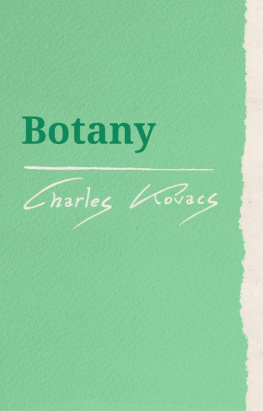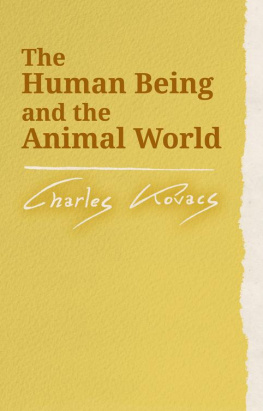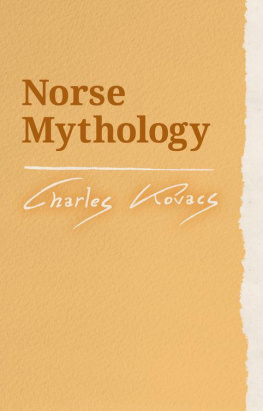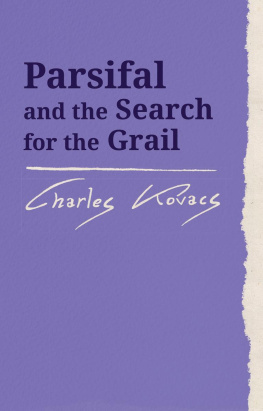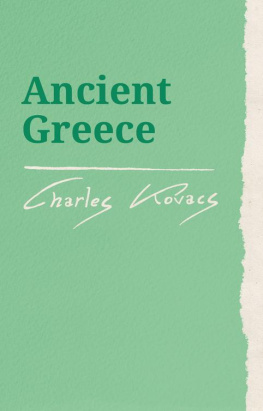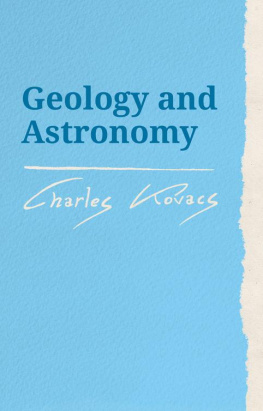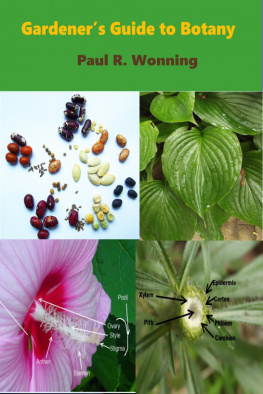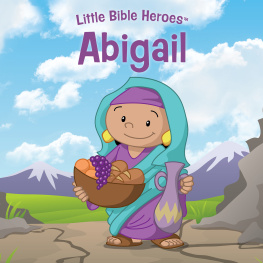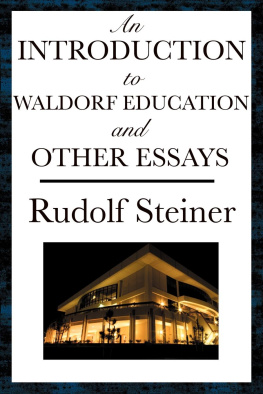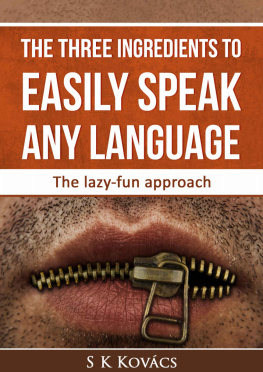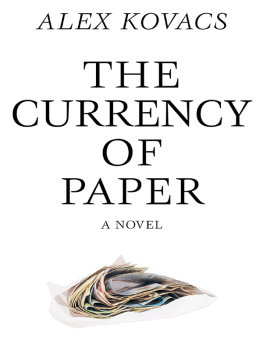Charles Kovacs - Botany
Here you can read online Charles Kovacs - Botany full text of the book (entire story) in english for free. Download pdf and epub, get meaning, cover and reviews about this ebook. year: 2020, publisher: Floris Books, genre: Children. Description of the work, (preface) as well as reviews are available. Best literature library LitArk.com created for fans of good reading and offers a wide selection of genres:
Romance novel
Science fiction
Adventure
Detective
Science
History
Home and family
Prose
Art
Politics
Computer
Non-fiction
Religion
Business
Children
Humor
Choose a favorite category and find really read worthwhile books. Enjoy immersion in the world of imagination, feel the emotions of the characters or learn something new for yourself, make an fascinating discovery.
- Book:Botany
- Author:
- Publisher:Floris Books
- Genre:
- Year:2020
- Rating:4 / 5
- Favourites:Add to favourites
- Your mark:
- 80
- 1
- 2
- 3
- 4
- 5
Botany: summary, description and annotation
We offer to read an annotation, description, summary or preface (depends on what the author of the book "Botany" wrote himself). If you haven't found the necessary information about the book — write in the comments, we will try to find it.
Charles Kovacs characterizes different plants, from fungi, algae and lichens, to the lily and rose families. He describes the parts of each plant and their growth cycle.
It is recommended for Steiner-Waldorf curriculum Classes 5 and 6 (age 10-12).
Botany — read online for free the complete book (whole text) full work
Below is the text of the book, divided by pages. System saving the place of the last page read, allows you to conveniently read the book "Botany" online for free, without having to search again every time where you left off. Put a bookmark, and you can go to the page where you finished reading at any time.
Font size:
Interval:
Bookmark:
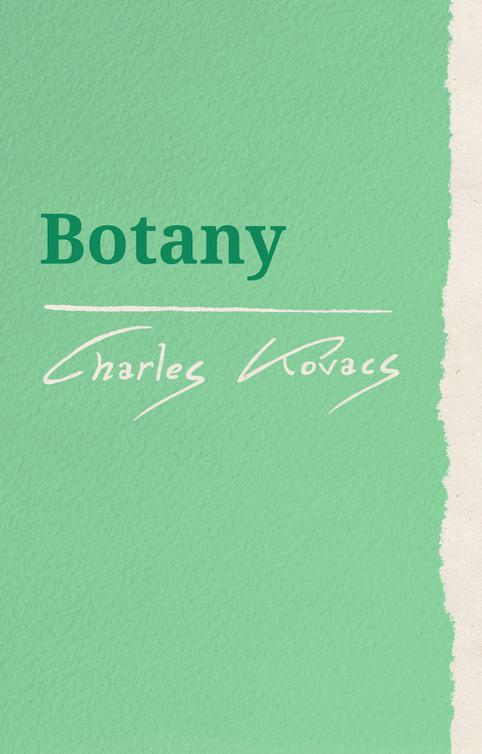
Charles Kovacs was a teacher at the Rudolf Steiner School in Edinburgh for many years. The Waldorf/Steiner schools sprang from the pedagogical ideas and insights of the Austrian philosopher Rudolf Steiner (18611925). The curriculum aims to awaken much more than merely the intellectual development it seeks to educate the whole being of the growing child, that each may develop their full human and spiritual potential.
During his time as a teacher Charles Kovacs wrote extensive notes of his lessons day by day. Since then these texts have been used and appreciated by teachers in Edinburgh and other Steiner Waldorf Schools for many years. This book represents the way one teacher taught a particular group of children, other teachers will find their own way of presenting the material.
There is an introduction by Charles Kovacs based on what he told parents about teaching botany in Class Five.
Astrid Maclean, Edinburgh 2005
If we consider the stage of development at which the children of ten or eleven are, an analogy from history may help.
It would be a mistake to assume that human beings have always thought logically, intellectually, as we do now. In fact, there is a definite point in time when logical thought as we know it begins when scientific inquiry as we know it begins when rational thought, speculation, analysis, makes its entry. The time when the faculty of rational, logical thought makes its appearance is ancient Greece, the time of the Greek philosophers, Socrates, Plato, Aristotle.
Older civilizations India, Babylon, Egypt, even Greece itself before the age of philosophy cultivated a different faculty. In India, Babylon or Egypt a myth was as valid an explanation of the world, of natural phenomena, as a scientific explanation is valid for us. Now a myth, a story of gods, heroes, monsters is not just the wild roaming of fancy. A true myth of antiquity is something which does contain poetic fantasy, but also a logic of its own. One could say that in the ancient civilizations, these two faculties, fantasy and logic, are not yet separated, they are still a unity. The Greek philosophers, the first rational, logical thinkers, appear at a certain point in time, simply because that is the time when fantasy and logic became separate and independent functions of the human mind. That is also the time when poetry emerges as a separate art.
Now what took place in human history on a large scale has its counterpart in the development of the individual human being. Around the age of eleven or twelve there is a beginning of that great divide where fantasy and logic part company.
It shows itself, for instance, as curiosity. Some children become fascinated by facts, any facts, of science, geography, history. It shows itself in other ways: some children get argumentative. They like to argue for arguments sake, but it is in reality no more than a new toy they have discovered; they like to play with this new toy.
Another side of this development is an enhanced feeling of ones own personality. A child at this stage is inclined to say: I like this or I dont like that with quite a new emphasis it is not at all like the likes and dislikes of younger children.
Even the naughtiness of children at this stage is different. Younger children can be naughty because they cant help it; they follow some urge they are unable to control. But children of this age are much more deliberately naughty. It is much more like a scientific experiment: How much can I get away with? How far can I go? And all this is connected with the process of awakening. For the emergence of logic, this parting of the ways between logic and fantasy, is an awakening. In the deliberate naughtiness, in the argument, in the enhanced feeling of ones own importance, in the curiosity, in all this the child experiences an awakening, as from a dream.
But there is one thing we must keep in mind. At this stage there is only the beginning of the process, it is not yet completed. If at this stage you give children just facts, the bare facts of science or of geography, then you are not really helping the growth and development that takes place in the child. They need the facts, they want the facts, but they must be linked in a way that still satisfies the feeling the fantasy the poetry in the child. Give them only the bare facts, then their fantasy, imagination and original creative ability, dies or withers.
That is why the botany lesson was given in the form set out here. The plants are given in the sequence of the evolutionary system, beginning with lower plant forms, fungi, algae, which have no flowers, pollen, seeds, and leading up to the flowering plants.
But the idea of evolution, of higher or lower plants, would be meaningless to the child. It has to be brought near to them by comparing the plant families with their own development. By comparing fungi with the baby stage, algae with the toddler making its first steps, monocotyledons with the first years at school by these analogies the children are introduced to evolution (although I never mentioned the word) in a way which makes them aware of their own evolution, their own development, something they can feel, not merely know. Of course such analogies contain an element of fantasy, they are poetic analogies, but this is exactly what the child still needs.
I must also say something about the place of the botany lessons in the science curriculum of the school. We proceed in science as we proceed in geography that is we begin with what is the nearest and then move farther and farther out. In geography we start with the local city, then the local country, the neighbouring countries, the continent and then the other continents. In science we begin with the kingdom which is nearest to human being the animal kingdom at age nine and ten (Class Four). Next we take the plant kingdom at age ten and eleven (Class Five). The mineral world, that is geology and the first steps in physics, come at age eleven and twelve (Class Six). Physics and chemistry come at age twelve to fourteen (Classes Seven and Eight). Mechanics, which is farthest away from our feeling, comes at age fourteen (Class Eight).
Charles Kovacs
In the winter when we have a particularly long spell of cold days, it is not only human beings who suffer; the plant and animal worlds are affected too. The birds are later than usual with their nest building, and the flowers and trees, in gardens and fields, on the hills and by the streams, are all kept waiting for the warm light of the sun. Just think of all the countless seeds under the earth, waiting for the light and warmth of the sun.
Imagine all these millions and millions of seeds held inside the earth during the cold season when there is snow, ice and cold winds, but they are safely kept inside. And now imagine for a moment that each seed is a tiny light, and if you can imagine that we could see through the earth, it would look as though there were millions of stars. During the winter, the earth would look like the starry sky.
If you struggle to understand something and suddenly you grasp it, you feel Ive got it! it is like a sudden spark of light. This is thinking, real thinking, when you feel such a spark of light within yourself.
If you are really attentive then right through the day there are these sparks of light in you, but that is only if you are really awake. When you are really attentive, really awake, you are like the earth in wintertime with its millions of sparks of light, the stars. We are more awake in winter, and more asleep in the warmth of the long summer holidays.
Font size:
Interval:
Bookmark:
Similar books «Botany»
Look at similar books to Botany. We have selected literature similar in name and meaning in the hope of providing readers with more options to find new, interesting, not yet read works.
Discussion, reviews of the book Botany and just readers' own opinions. Leave your comments, write what you think about the work, its meaning or the main characters. Specify what exactly you liked and what you didn't like, and why you think so.

